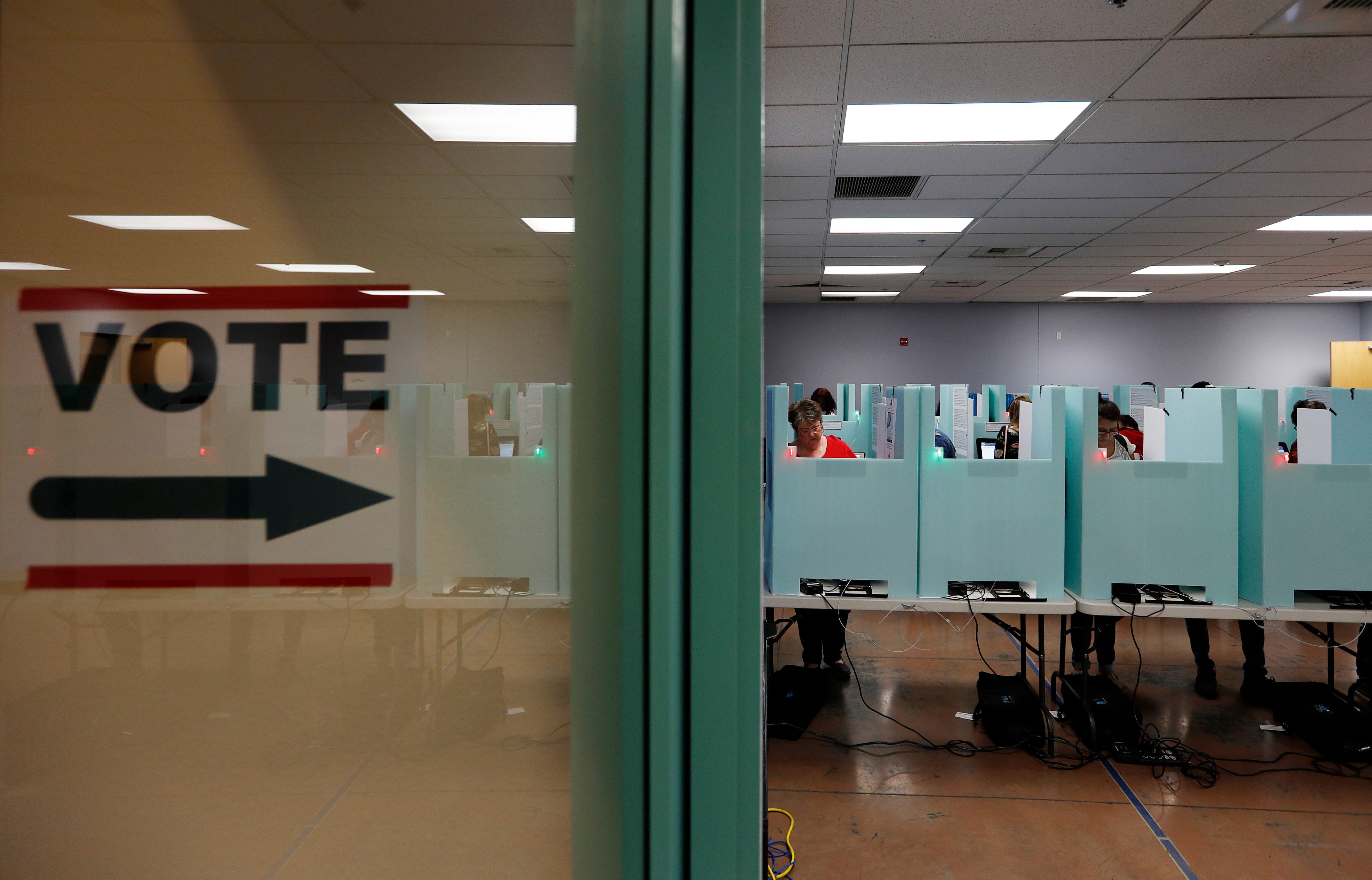Russia, China and Iran view next week’s presidential election as an opportunity to weaken American democracy by sowing doubt about the voting process and targeting one of the government’s key tenets — the peaceful transition of power, several cybersecurity and military experts said Thursday.
America’s election infrastructure is safe and secure, and voters should feel confident in the process, said Suzanne Spaulding, a former undersecretary for the Department of Homeland Security who now works with the Center for Strategic and International Studies.
However, some foreign actors are trying to persuade voters to view the process as too corrupt to participate in, and these same actors will likely try to convince Americans after Election Day that the results were illegitimate, she said.
“In 2016, our assessment was that it would be extremely hard, virtually impossible, for an adversary to change votes or tallies in order to change the outcome of a national election,” said Spaulding, who was working with DHS that year. “I think that is only more true today. We’ve gotten better at shoring up the cybersecurity of election infrastructure.”
Spaulding spoke Thursday on a panel hosted by the Foundation for Defense of Democracies, a research group focusing on foreign policy and national security. Earlier this month, the group flagged an Iranian-linked website that was attempting to stir up antidemocratic sentiments among veteran voters.
RELATED

Disinformation experts have been warning for months that malign actors, both foreign and domestic, would attempt to weaken the democratic process this election year. Spaulding and other experts who spoke Thursday said the efforts would likely result in some voters not believing the outcome of the election next week.
“The elections are going to be secure, but we are going to have a meltdown on Nov. 7 or 8 — no matter what happens — because of people’s perceptions of what happened,” said Mark Montgomery, who works with the Foundation for Defense of Democracies.
Russia, China and Iran are targeting Americans in order to paint a negative picture of democracy and eventually sideline the U.S. military, added Bradley Bowman, an Army veteran who focuses on U.S. defense policy for the Foundation for Defense of Democracies.
Part of their strategy is to encourage isolationist beliefs among the U.S. population and encourage citizens to oppose intervention in overseas conflicts, he said.
“They want us so weak, divided and distracted that we question ourselves and don’t have the time or the will to go and defend our interests abroad,” Bowman said. “Divide us at home, degrade our democracy in our own minds and the minds of others, and then deceive us into believing falsely we have no core interests to defend in places like Taiwan, Ukraine, Israel. Then, they don’t need to worry about our military.”
In order to combat the foreign influence campaigns, Montgomery suggested Congress provide more funding to the Cybersecurity and Infrastructure Security Agency, a component of DHS that works to protect the country from cyber threats, as well as the State Department’s Global Engagement Center, which exposes and defends against foreign propaganda and disinformation.
Government leaders should also pay more attention to information from the Office of the Director of National Intelligence, he said.
Spaulding said the U.S. population should work to become more resilient against disinformation, in part by improving civics education in American schools. Kids should learn the fundamentals of American democracy and the role individuals play to preserve it, she said.
“The target is every single American. Americans should not take that lightly,” Spaulding said. “They should be demanding [that] policymakers ... have a vigorous response to counter this activity.”
This story was produced in partnership with Military Veterans in Journalism. Please send tips to MVJ-Tips@militarytimes.com.
Nikki Wentling is a senior editor at Military Times. She's reported on veterans and military communities for nearly a decade and has also covered technology, politics, health care and crime. Her work has earned multiple honors from the National Coalition for Homeless Veterans, the Arkansas Associated Press Managing Editors and others.





